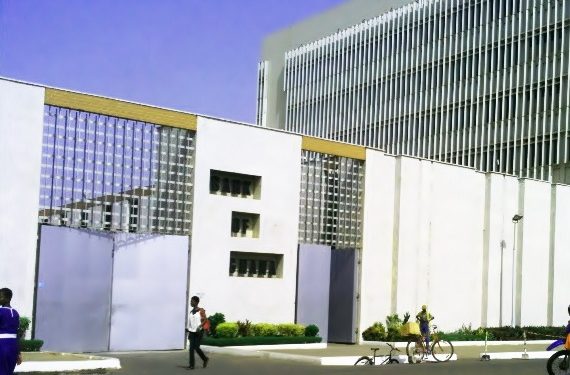A new report by international rating agency, Moody’s, says the steps taken by regulatory authorities to recapitalize the financial sector has given a positive signal about Ghana’s economic and financial stability.
This, coupled with efforts directed at reducing the country’s power deficit, according to Moody’s, shows effective policy making, improving the confidence level in government.
The report added that these positive strides could cushion Ghana against external shocks.
“Measures taken over the past couple of years to recapitalize the financial sector and to address the country’s power deficit also suggest active, moderately effective policy-making and support rising confidence in policymakers’ ability to sustain economic and financial stability, and to limit the risk of external shocks in the coming years,”. The report said.
The report said in recent years Ghana has seen a number of positive developments in key credit metrics, which partly reflect the institutional and fiscal reforms implemented under the four-year IMF program that was completed in April 2019.
These include a return to sustained economic growth at around 5% on average, supported by the development of domestic hydrocarbon resources and the prospect of sustained non-oil growth driven by the restoration of power supply and renewed infrastructure investment, a structural improvement in the current account dynamics, and fiscal reforms which have resulted in primary surpluses since 2017.
Moody’s revises Ghana’s economic outlook rating from stable to positive
Moody’s also affirmed the country’s long-term issuer and senior unsecured bond ratings at B3.
Moody’s in a statement explained that its decision to assign a positive outlook stems from its rising confidence that the country’s institutions and policy settings will lead to fiscal stability among others as a result of the reforms implemented under the recent IMF reform programme.
“The decision to assign a positive outlook reflects Moody’s rising confidence that the country’s institutions and policy settings will foster improved macroeconomic and fiscal stability over the medium term, in part as a consequence of the reforms implemented under the recent IMF reform program. Those reforms are beginning to bear fruit, as seen for example in the return to primary fiscal surpluses, measures to smooth the debt maturity profile and increasingly sustainable growth prospects.”
Moody’s has since March 2015 rated Ghana at B3/Negative Outlook.
However, in September 2016, the rating was revised from negative to stable under former President John Dramani Mahama’s regime.
In its 2016 rating, it cited significant fiscal deficit reduction and success in implementing structural reforms over the past year as well as reduced government liquidity risk on the external side following the issuance of the US$750m Eurobond as some of the key drivers for the stabilization of the rating.
Nana Addo Dankwa Akufo-Addo, then flagbearer of the New Patriotic Party (NPP), described as inaccurate, Moody’s rating.
Nana Akufo-Addo at the time said the rating was not a true reflection of the current state of Ghana’s economy, adding that there were some challenges that then governing NDC was still struggling to tackle.
“Is NDC taking the massive unemployment rate in our country into account? This is not the way that the Ghanaian people want to be governed. They expect to be governed with truth not with deception, with honesty and not with lies, with policy and not with propaganda,” Nana Akufo-Addo said at the time.
About Moody’s
Moody’s Investors Service, often referred to as Moody’s, is the bond credit rating business of Moody’s Corporation, representing the company’s traditional line of business and its historical name.
Moody’s Investors Service provides international financial research on bonds issued by commercial and government entities. Moody’s, along with Standard & Poor’s and Fitch Group, is considered one of the Big Three credit rating agencies.
The company ranks the creditworthiness of borrowers using a standardized ratings scale which measures expected investor loss in the event of default.
According to Wikipedia, Moody’s Investors Service rates debt securities in several bond market segments. These include government, municipal and corporate bonds; managed investments such as money market funds and fixed-income funds; financial institutions including banks and non-bank finance companies; and asset classes in structured finance. In Moody’s Investors Service’s ratings system, securities are assigned a rating from Aaa to C, with Aaa being the highest quality and C the lowest quality.
Source: Citinewsroom.com






